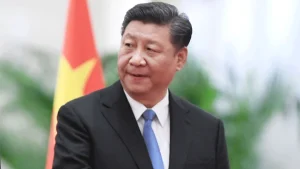What the West Gets Wrong About China?
The China Academy picked a part of their conversation featuring the discussion on the concept of “Individual VS Collective.” Professor Dugin mentioned that “To be individual is to live by the spirit of the state, to serve the state, to fight for the state.” He emphasized that Russian patriotism stems from this evaluation of the human aspect of the state. In response, Professor Zhang Weiwei provided his assessment based on the Chinese concept of “国家” (Guo Jia) .
Professor Zhang Weiwei:
It reminds me of the Chinese culture and its idea of the state. In a way it’s similar, because the very characters or words for the state in Chinese language is what we called the family state, state family. Together two words, in China we say 家国同构. Therefore, it plays an important role in the long tradition of China civilization.
Alexsander Dugin:
Yes, I think as long as I know, I have dedicated to China, Chinese civilization in one of my books – 24 books dedicated to all civilizations. One of them was for China. I have fallen in admiration, in love with China, with Chinese culture. That is an example of how you balance individual and public, heavenly and earthly, Yin and Yang in harmony.
That is an extremely healthy attitude; it has nothing to do with Western culture, Western anthropology, or Western sociology. You have managed to preserve this deep cultural originality through different dynasties and ideological eras. This is perhaps due to natural-born Confucianism, an ethical order that respects cultural values throughout history. Officially, there were different ideologies, but the sense and meaning of the Chinese identity and design remained almost permanent.
I think that is important. That is why the West doesn’t understand China and the Chinese phenomenon. They judge only at the official level of the state, where decisions, laws, and regulations are made, and they consider individuals on macro and micro levels.
They fail to understand this and miss the main difference between themselves and China. In China, there is not only a mechanical state but also a cultural state. Beyond individuals, there is a cultural identity that unites everyone. They completely miss this intermediate dimension, leading to incorrect hypotheses and predictions about the rise or fall of China. It’s a totally different scenario, requiring a revision of our approach.
In Russia, we are currently revising humanitarian sciences because the western humanitarian sciences are colonial, racist, and Eurocentric. For instance, these sciences often assert that the Western liberal subject is the only way to understand sociology, anthropology, politics, history, culture, law, psychology, and everything else. This colonial mindset has been installed like a program in our educational systems in China and Russia. Now, we need to make a significant effort to separate the toxic core of Western epistemology, retaining the positive classical heritage of Western culture while reviving and rediscovering our own scientific identities—our Chinese and Russian epistemologies.
In the Islamic world, research of this kind is very popular, and they believe that Muslim science and humanities have the right to exist. We have now reached a similar understanding in Russia. We had ideology, we have lost ideology, now we need new ideology, everybody in Russia agree that we need new Russian ideology, that would compensate, that would improve such epistemological colonization of our science in humanitarian field first of all. But if we go deeper, we should revise as well many natural sciences, as they also bear traces of their modern Western origins.
As more advanced anthropologists and postmodernists, we sometimes criticize the colonial essence of modern Western natural sciences. Applying these sciences, we fail to grasp the richness of Chinese art and architecture, leading to a misguided understanding of nature. Each civilization has its own unique key to interpreting nature. While this is widely accepted in the humanities, it is more challenging in the field of natural science. Nonetheless, we must assert that there is and should be a distinctive Chinese perspective on nature.
This concept is similar to what President Putin recently referred to as the “Russian World.” It encompasses not just society, but also nature, addressing both the subjective understanding and the objective structure of nature. This perspective is truly exciting.
Professor Zhang Weiwei:
And your comments on the influence of western liberal arts and social sciences actually remind me of the end of year event Guancha held just a few days ago. I made a speech and mentioned the fact that thanks to the US sanctions in high tech and chips, Huawei made a breakthrough, we now have our own chips. I said hopefully US will place sanctions on liberal arts and social sciences, then we are going to decolonize liberal science, and whatever social sciences in China. Indeed, we need to have this kind of decolonization, that’s important.
Editor: Catherine Yang



